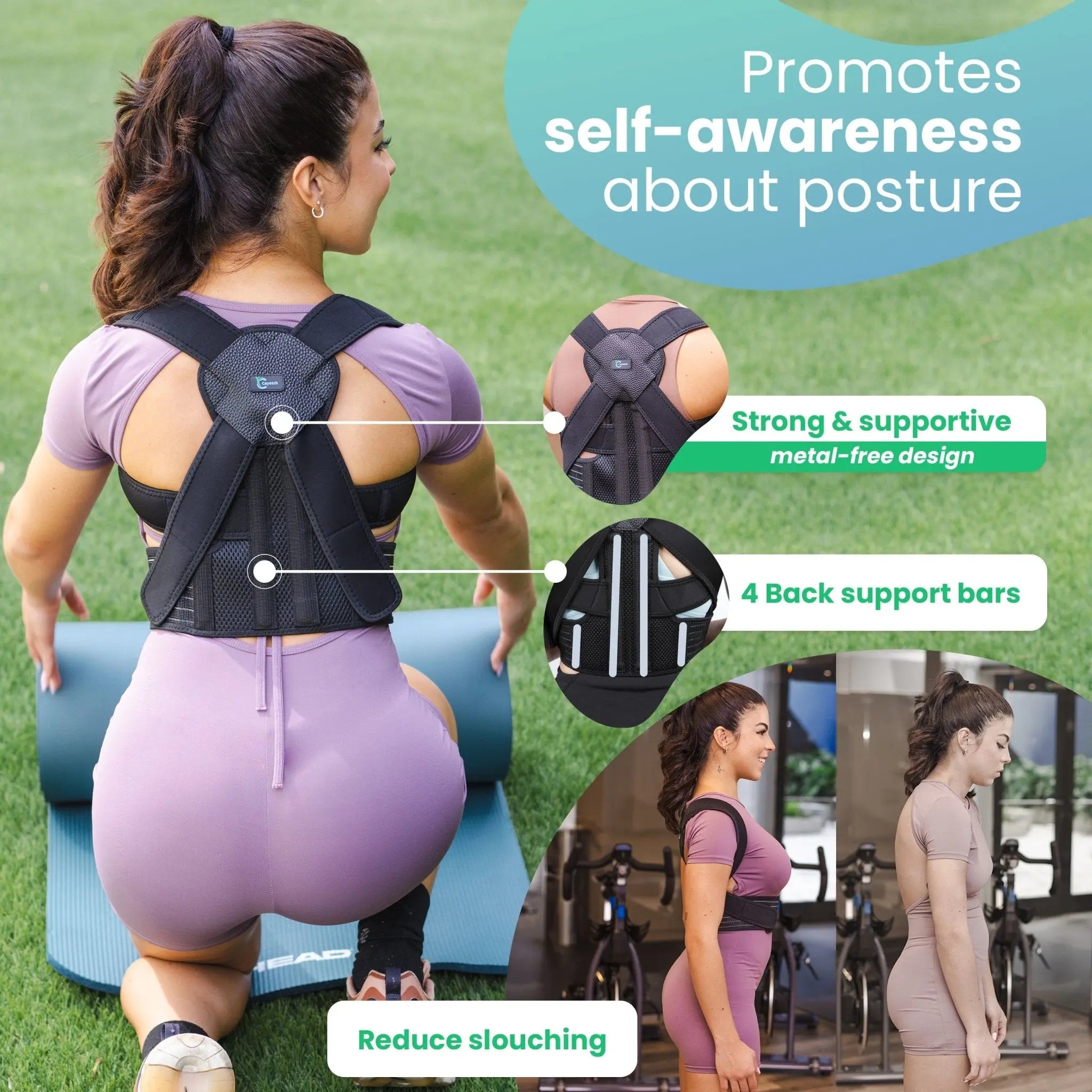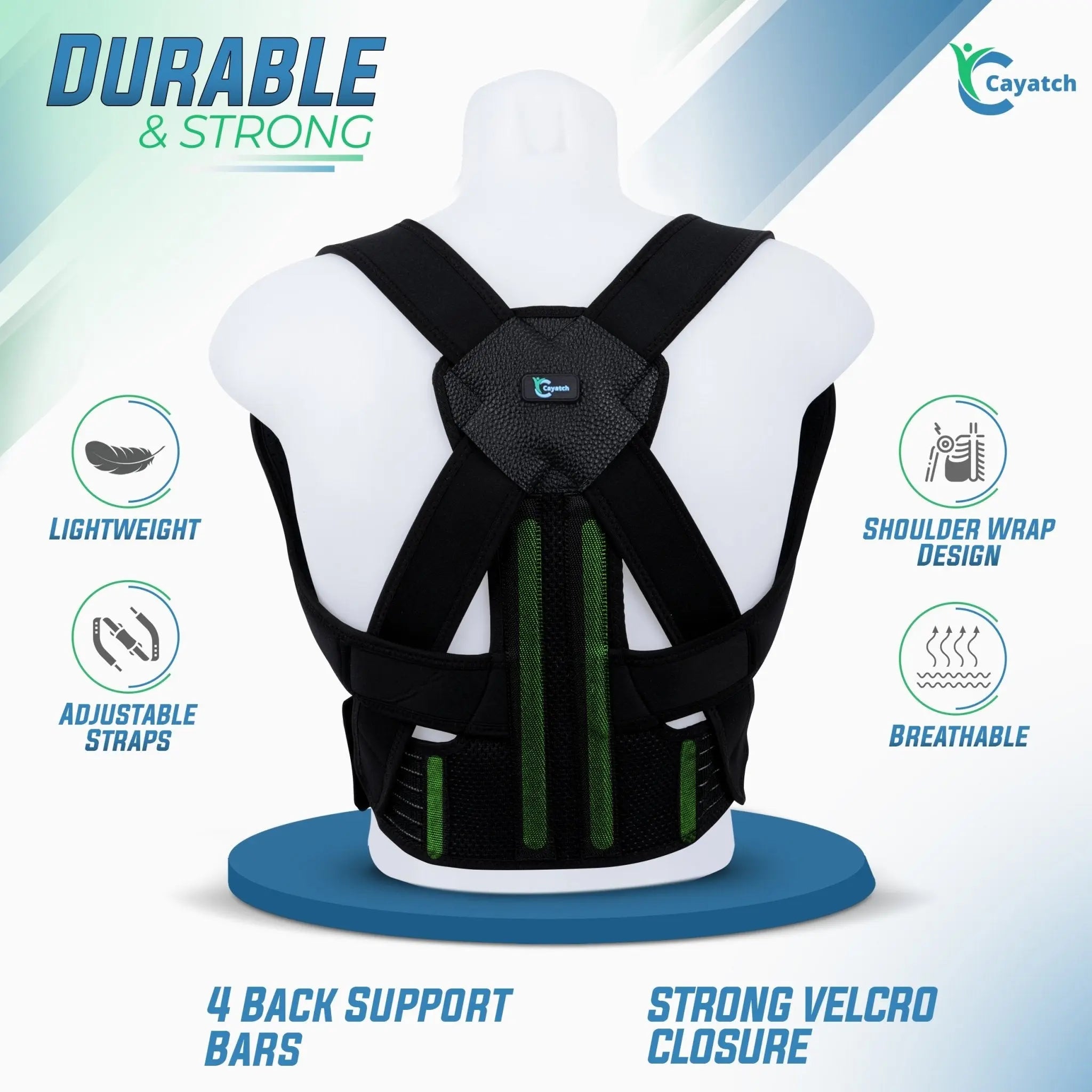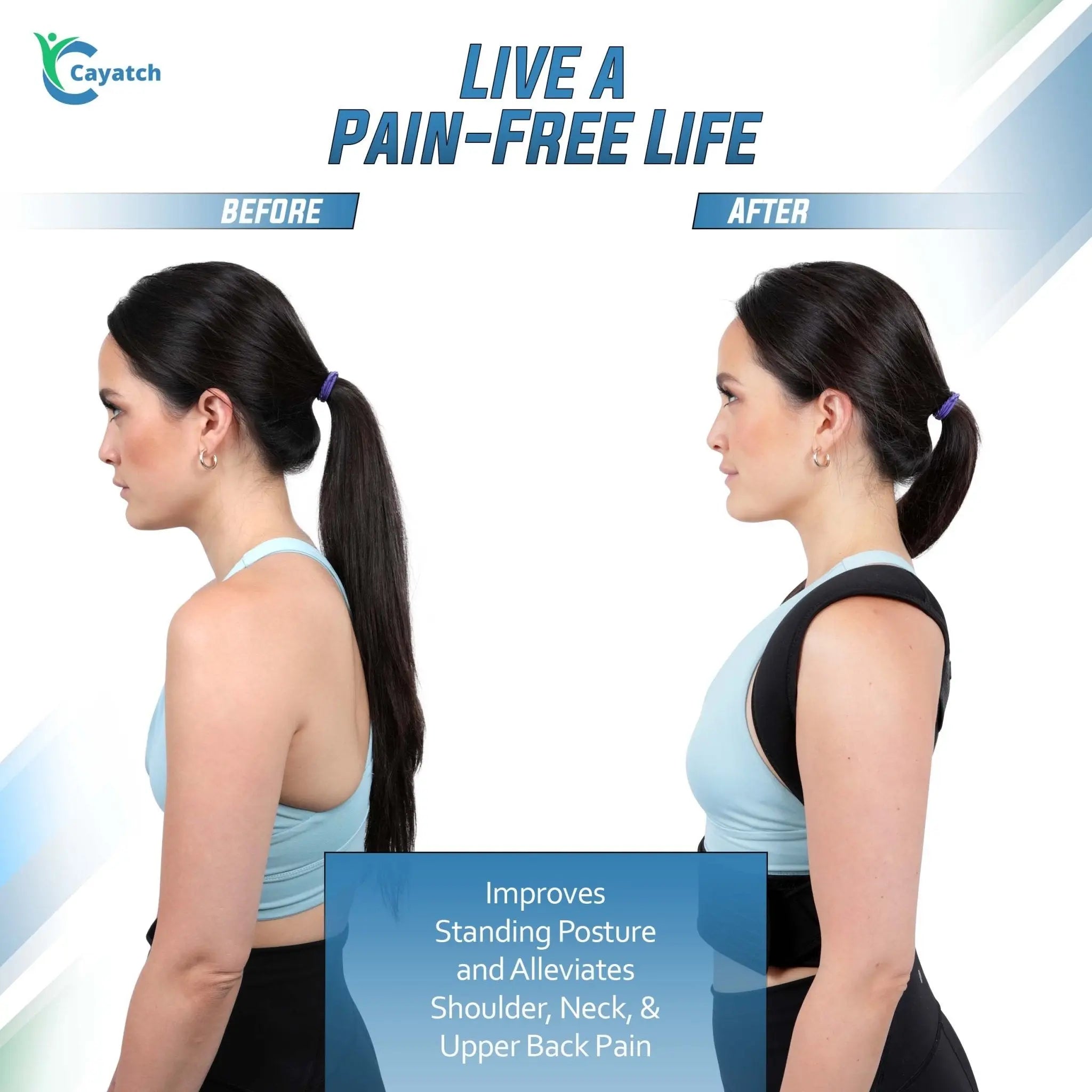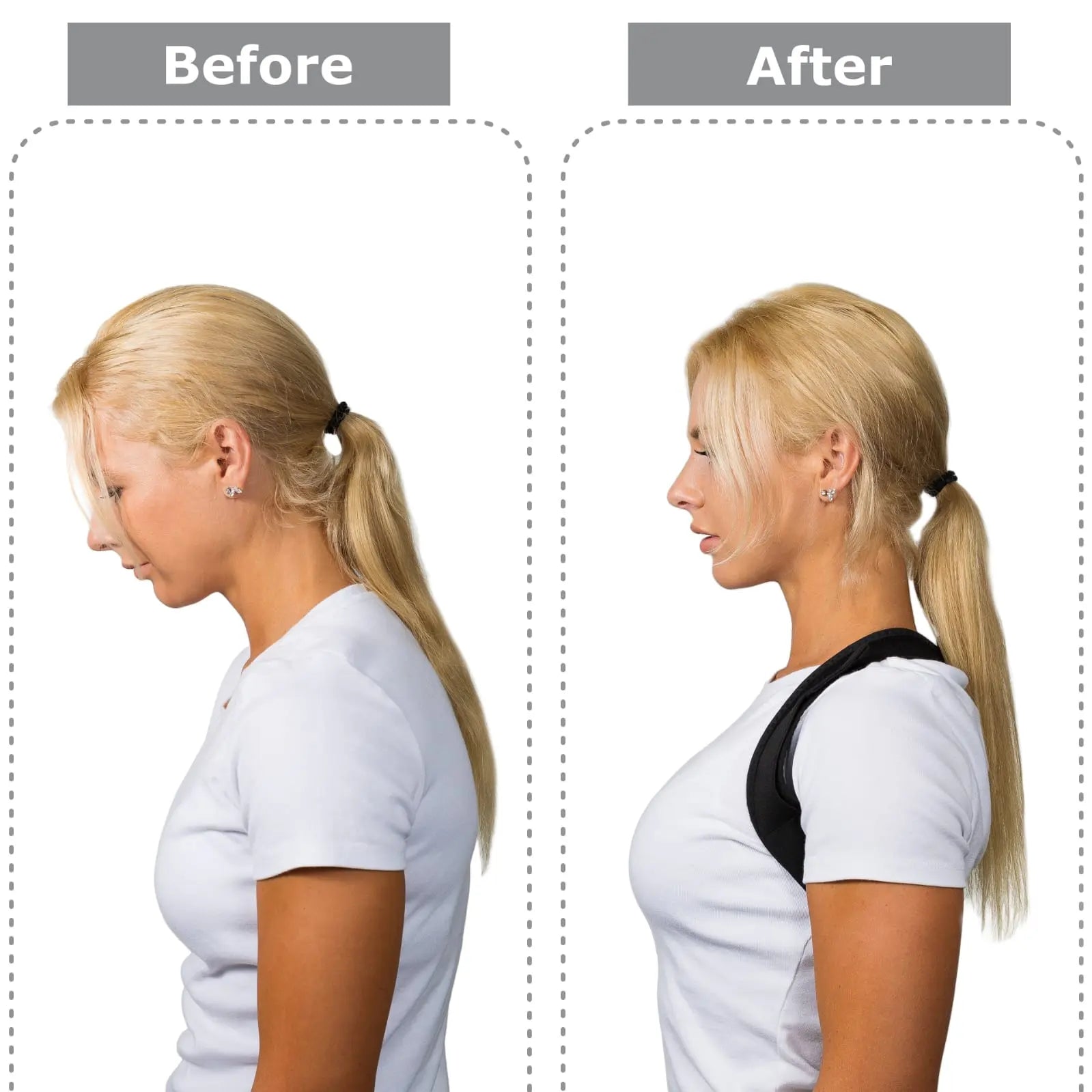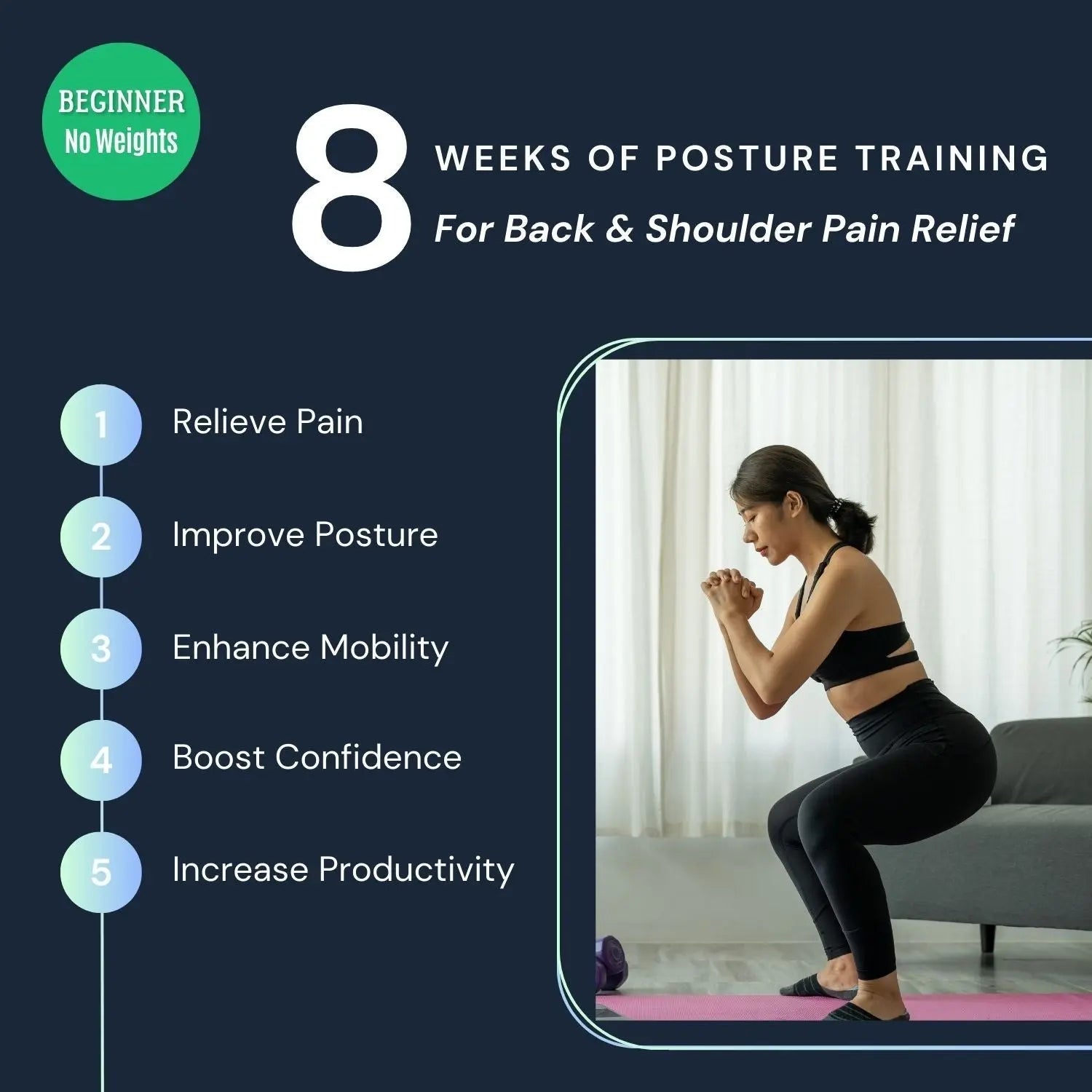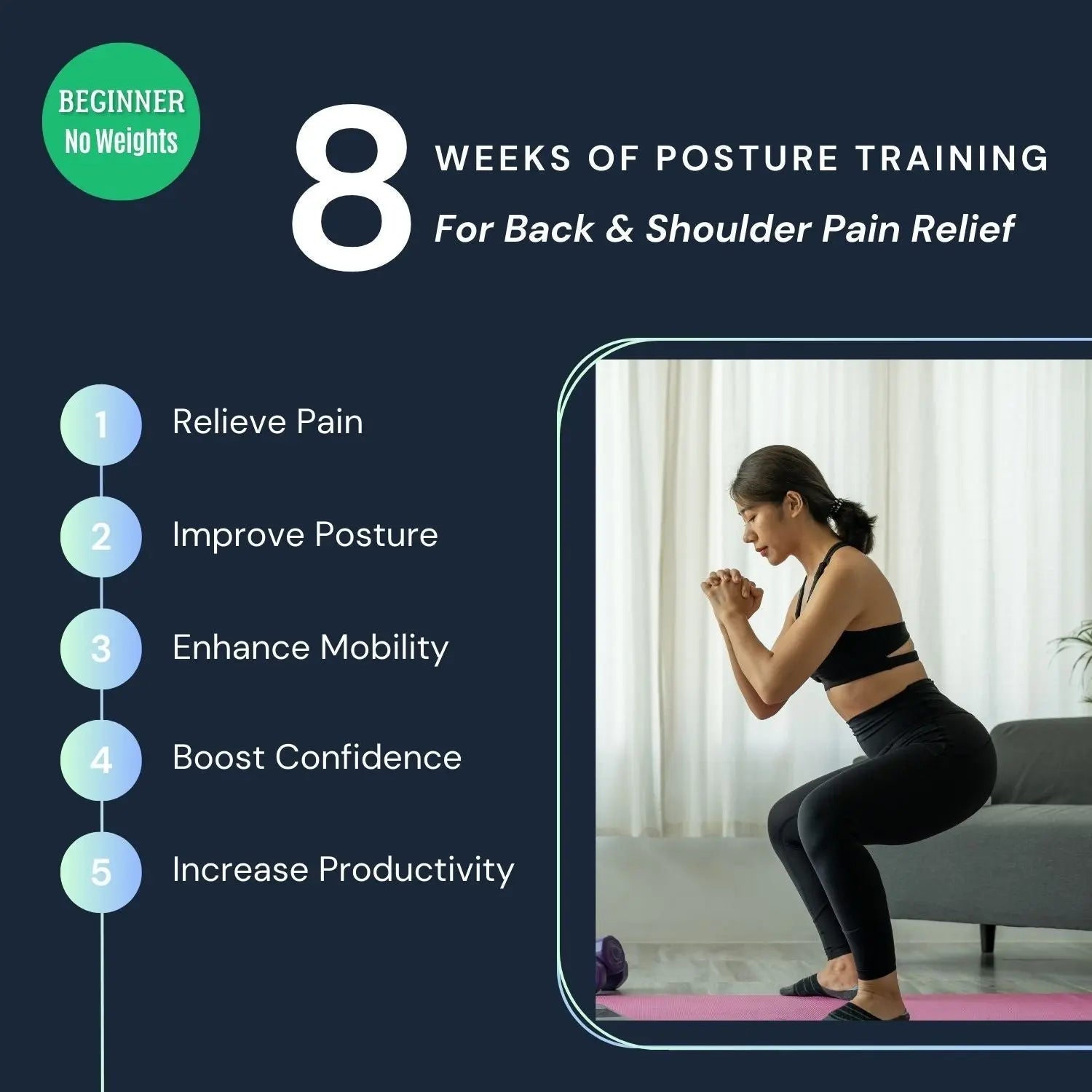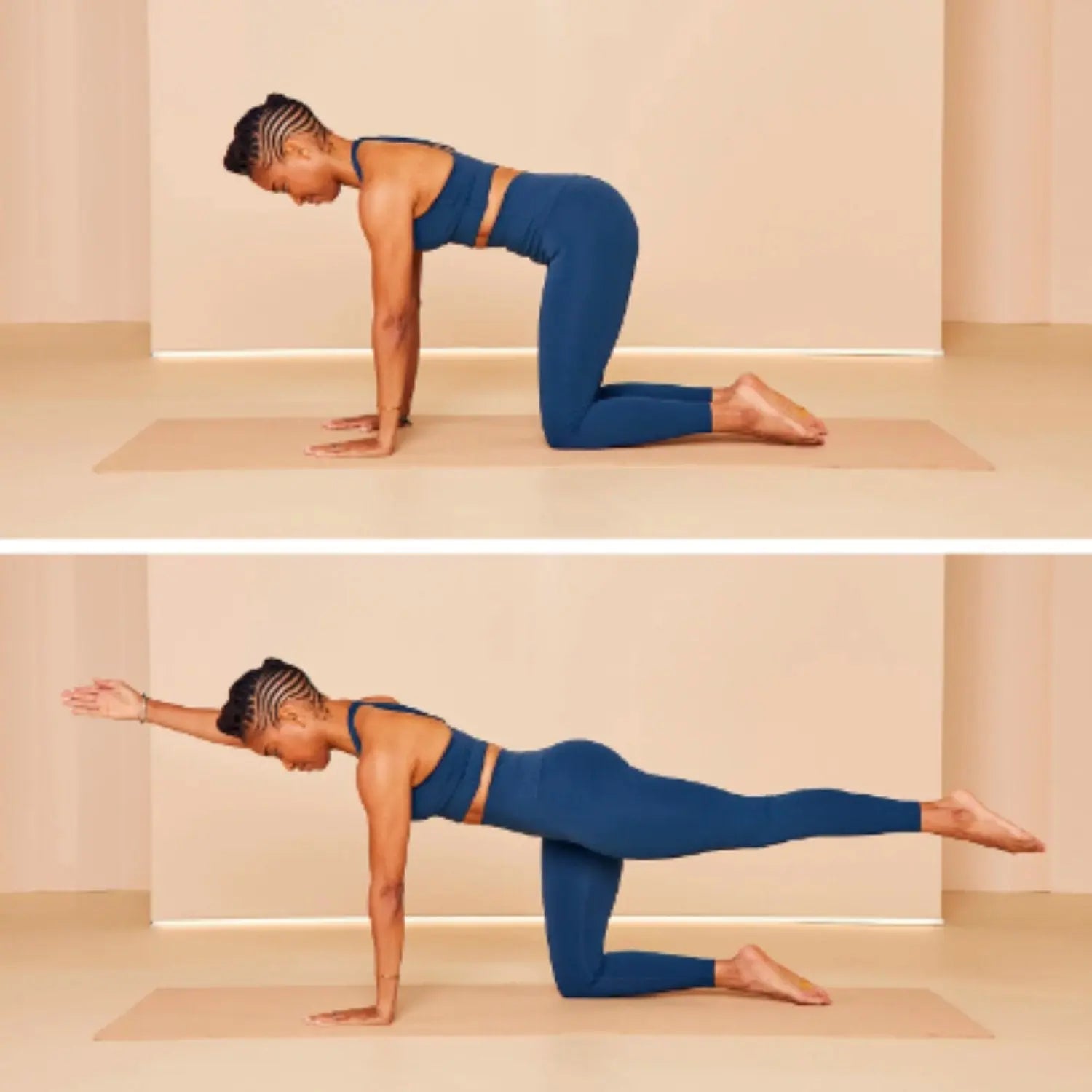How To Improve Posture While Sleeping? Proven Ways That Help

The importance of maintaining a healthy sleep posture is often underestimated. A proper sleeping posture can effectively reduce the chances of developing a hunched back and forward head position.
Sleeping in a position that supports your spine's natural curvature will help you avoid chronic back pain and other spinal problems.
Several health problems can result from a bad night's sleep in an unhealthy position, including back pain, neck pain, shoulder misalignment, or even the development of a hunchback posture.
Furthermore, sleeping in an awkward position can lead to spinal deformities, including scoliosis. So today, we will explore how to adapt to a healthy sleeping position to eliminate these drawbacks.
Ideal Sleeping Posture: Everything You Need to Know

You will soon notice various health issues if you consistently sleep in the wrong position. Therefore, it's high time to consider improving your sleeping posture.
Now, let's delve into the critical factors that influence the quality of your sleep and posture, focusing on the role of the spine, different sleeping positions, and the importance of a supportive mattress and pillow.
The Role of the Spine in Maintaining Good Posture:
The cervical, thoracic, and lumbar regions of your spine each have their unique curvature. To maintain good posture, taking care of these curvatures is essential.
Your spine comprises 33 individual bones called vertebrae that bear the body's weight and protect the spinal cord.
The cervical (neck), thoracic (middle back), and lumbar (lower back) parts of the spine all function correctly when the spine is in alignment. This alignment is crucial for sleeping in an upright position.
For instance, if you sleep in a posture that doesn't allow your spine to naturally curve, you may wake up with sore muscles, compressed discs, and a misaligned spine.
These abnormalities can worsen over time, eventually leading to persistent back pain and other postural disorders.
For those seeking to correct a hunchback while they sleep, spinal alignment is of utmost importance since it directly affects their comfort levels.
Hunchbacks may worsen when people sleep in postures that don't accommodate their spines' normal curvatures.
Different Sleeping Styles and Ideal Sleeping Postures:

People have diverse preferences, needs, and medical considerations when it comes to choosing the best sleeping posture. Now, let's explore various sleeping styles and the recommended postures for each.
1. Back Sleeping
Sleeping on your back is recommended because it helps maintain the natural curvature of your spine, promoting comfortable and healthy alignment for your head, neck, and back.
Support:Many people find that resting on their backs is the most comfortable position, especially when using a high-quality mattress and a pillow that conforms to the shape of their spine.
Lying on one's back is often recommended as one of the best posture-maintaining sleeping positions because it allows the head, neck, and spine to rest in a neutral and aligned position, helping prevent issues like forward head posture.
2. Side Sleeping
Side sleeping can also promote proper spinal alignment when using a pillow that adequately supports your head and neck. For many, sleeping on their side can alleviate sleep apnea symptoms and reduce snoring.
Individuals with acid reflux may find relief by sleeping on their side, as this position lowers the chances of stomach acid flowing back into the esophagus during sleep.
If you prefer side sleeping, ensure your pillow is firm enough to keep your head and neck aligned with your spine, reducing the risk of developing a forward head posture.
3. Stomach Sleeping
In terms of spinal alignment, stomach sleeping is often considered the least ideal choice. It can force your neck and spine into awkward positions, potentially leading to problems like forward head posture.
When you sleep on your stomach, your head is either tilted to the side or buried in the pillow. While some people may find this position most comfortable, it's not recommended for those who prioritize proper posture or spinal health.
To minimize the risk of developing forward head posture and associated discomfort, stomach sleepers should use a thin pillow or none at all, and strive to keep their head and neck as straight as possible during the night.
The Significance of a Good Mattress and Pillow:

The importance of selecting a supportive mattress and pillow is sometimes underestimated, yet it is crucial for a better night's sleep, especially for those with concerns about hunchback and spinal alignment.
Both a good mattress and pillow are essential for maintaining the proper curvature of the spine. Maintaining spinal curves while sleeping can help prevent postural issues such as hunchback.
A quality mattress should gently conform to your body's natural curves, preventing further misalignment.
Additionally, the pressure-relieving features of a good mattress can aid in addressing postural problems, reducing the risk of hunchbacks worsening during sleep.
Furthermore, the right pillow should support your neck, promoting proper spinal alignment whether you sleep on your stomach or side. This alignment contributes to maintaining the natural curvature of your spine throughout the night.
Tips for Improving Posture While Sleeping
By now, you understand the importance of taking care of your sleeping posture to enhance your overall posture, especially when dealing with conditions like a hunchback. Therefore, here are some valuable tips that can work in your favor:
1. Stretching Before Bed

Engage in light exercises and stretching before bedtime. Stretching your neck and back can alleviate muscle tension and enhance alignment.
Many people have found that pre-bedtime stretching routines are beneficial, especially when addressing sleep posture issues such as a hunchback.
By increasing flexibility, relieving tension, and promoting relaxation, these activities prepare the body for optimal sleeping positions.
Consider incorporating deep breathing and relaxation techniques into your routine for an even more refreshing and posture-conscious slumber. Additionally, a 30-second plank exercise can yield even better results.
2. Using a Body Pillow for Support

You may not be familiar with this, but there are body pillows designed to support your spine and maintain proper back alignment.
Position the pillow between your knees and sleep on your side to maximize its benefits.
For side sleepers and individuals dealing with issues like a forward head position, body pillows play a vital role in providing optimal alignment and comfort throughout the night.
Furthermore, for those who struggle to prevent their heads from tilting forward while sleeping on their sides, a body pillow can be strategically positioned to offer neck support and maintain a neutral head position.
3. Adjusting the Height of the Pillow
Always use a pillow that keeps your neck, back, and shoulders in proper spinal alignment, especially concerning your neck and shoulders.
Ensure that your pillow provides sufficient support to prevent misalignment during sleep.
Avoid pillows that are too low or too high, as they may hinder restful sleep.
If you experience neck pain or discomfort while sleeping, consider using a cervical pillow beneath your neck for optimal results.
Cervical pillows are readily available and comfortable, ensuring your sleep quality remains uncompromised.
4. Sleeping on Your Back or Side
Sleeping on your stomach can significantly contribute to poor posture as it places undue stress on the neck and spine, potentially leading to alignment issues and discomfort.
In contrast, opting to sleep on your back or side promotes better spinal alignment, alleviating muscle strain and ensuring a more comfortable and posture-friendly sleep experience.
These alternative sleeping positions not only enhance posture but also contribute to a healthier and more restful night's sleep.
5. Avoiding Sleeping on Your Stomach

For various reasons, including the difficulty in correcting a hunchback while sleeping, it is not advisable to sleep on your stomach for maintaining a healthy posture.
When you sleep on your stomach, you subject your neck and spine to unnecessary stress, potentially leading to alignment issues.
If you have a hunchback or other posture-related challenges, sleeping on your stomach can make it much more challenging to straighten your spine.
As a result, transitioning to sleeping on your back or side is generally recommended to aid in posture improvement.
Other Factors That Affect Posture While Sleeping
It's not just your sleeping position that influences your posture during sleep; there are other factors that tend to be overlooked but can have a significant impact. Here are a few to consider for your convenience:
1. The Impact of Stress on Posture

Reducing stress levels may be a good starting point if you're trying to correct a hunchback while you sleep. Stress can cause the muscles responsible for maintaining an upright posture to tighten.
Stress can adversely affect sleep posture, but practicing relaxation techniques such as meditation, deep breathing exercises, and yoga can be beneficial.
Utilizing these stress management techniques can help individuals with hunchbacks find a more relaxing and healthier sleeping position.
2. The Importance of Regular Exercise

Regular exercise can help maintain the alignment of your spine and neck by strengthening the supporting muscles. Exercises like planks and others that target the abdominal muscles, common in yoga, can have a significant impact.
Exercising helps people maintain their preferred sleeping postures throughout the night, which, in turn, enhances sleep quality.
However, vigorous activity right before bedtime may have the opposite effect on sleep quality, so it's advisable to avoid it if possible.
3. The Role of Diet in Maintaining Good Posture

Lastly, it's worth noting that diet and water intake are contributing factors for those who have a hunchback while sleeping.
Muscle and bone health are influenced by a diet rich in the necessary nutrients for their creation and maintenance.
Staying well-hydrated is equally important, as dehydration can lead to nighttime muscular cramps and pain, contributing to poor posture in the morning.
Better sleep posture can result from a balanced diet that includes bone-healthy nutrients such as calcium, magnesium, and vitamin D, along with regular hydration.
Frequently Asked Questions (FAQs)
How can I determine if my sleeping posture is poor?
There are several signs that may indicate poor posture while sleeping.
Some of these signs include waking up with neck or back pain, experiencing fatigue throughout the day, facing breathing difficulties, lack of energy, and experiencing numbness in certain body parts.
If you notice any of these signs, it is important to start making changes to your sleeping posture.
Can poor sleeping posture lead to long-term health problems?
Yes, poor sleeping posture can indeed lead to long-term health problems. Sleeping with poor posture may result in chronic body pain, spinal misalignment, poor blood circulation, and even respiratory issues.
That is why it is crucial to improve your posture even while you sleep to prevent such health problems from arising.
Can using a body pillow help improve my sleeping posture?
Certainly, using a body pillow can help improve your sleeping posture. You can receive additional support by using a body pillow while sleeping on your side.
This helps in maintaining proper spinal alignment during sleep. A body pillow can help keep your spine in a neutral position, reduce muscle tension, and alleviate pressure.
Are there any other lifestyle changes I can make to enhance my sleeping posture?
Yes, there are several lifestyle changes you can make to enhance your sleeping posture.
Regular exercise to strengthen your muscles, maintaining a healthy diet, and avoiding prolonged periods of sitting or standing in one position are all beneficial.
Additionally, incorporating a daily workout routine that focuses on posture can be helpful. If you find it challenging to make these changes, you may consider using a posture corrector consistently to observe prompt improvements.
Final Verdict
To prevent long-term health issues, it is crucial to make simple changes in your sleeping positions and habits that promote good posture.
By doing so, not only can you improve your posture, but you can also experience better sleep quality and enhanced overall health.
Correct sleep posture can help alleviate a hunchback or forward head posture. Consider a comfortable mattress and pillow, proper sleeping postures, stress management, regular exercise, and a balanced diet to achieve these benefits.


























